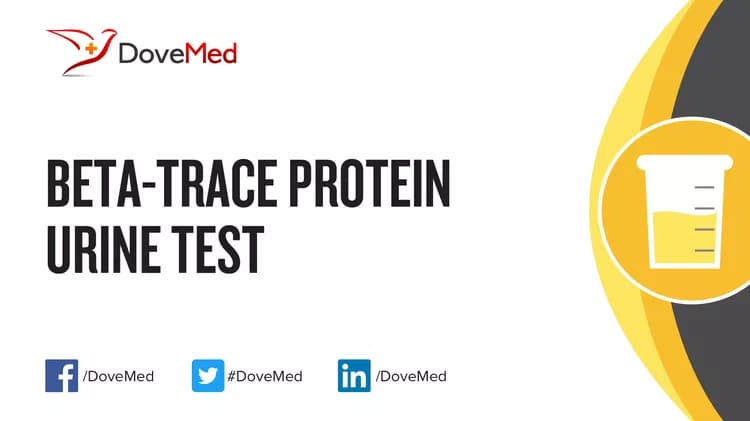What are other Names for this Test? (Equivalent Terms)
- ß-Trace Protein Urine Test
- Beta-Trace Protein Levels Urine Test
- Lipocalin-Type Prostaglandin D Synthase Urine Test
What is the Beta-Trace Protein Urine Test? (Background Information)
- Beta-trace protein (BTP) is a small protein found in many body tissues, including the retina, heart, and genitals. It is a lipid transporter that binds to fatty compounds, such as hormones, and helps transport them through blood
- BTP is used a biomarker for kidney function, because of its small size, stability, and constant rate of production
- The kidneys, along with the liver and spleen, filter blood and excrete the waste as urine. The site of filtration is a microscopic sieve-like structure called the glomerulus. There are roughly 1 million glomeruli in each kidney
- The rate at which the glomeruli filter blood is called the glomerular filtration rate (GFR). When the kidneys and their glomeruli are damaged, GFR may decrease
- Decreased GFR may result in the accumulation of proteins, such as BTP, in urine. Other proteins, such as cystatin C and creatinine, may also accumulate in urine and may be used as biomarkers. However, BTP is a more useful indicator than creatinine in individuals with chronic kidney disease, kidney transplant recipients, and children
- The Beta-Trace Protein Urine Test helps measure the level of BTP in urine. It is used to assess the glomerular filtration rate. This measure indirectly provides an assessment of the kidney function
What are the Clinical Indications for performing the Beta-Trace Protein Urine Test?
Following are the clinical indications for performing the Beta-Trace Protein Urine Test:
- Evaluating kidney disease
- Yellowing of the skin
- Discolored urine
- Difficulty urinating
- Urinating more or less often than usual
How is the Specimen Collected for the Beta-Trace Protein Urine Test?
Following is the specimen collection process for Beta-Trace Protein Urine Test:
Sample required: Urine
Process of obtaining a sample in adults: Urination into a sterile container over a 24-hour period.
Preparation required: It is recommended to drink 6 to 8 glasses of water or other fluids prior to the test.
What is the Significance of the Beta-Trace Protein Urine Test Result?
A high Beta-Trace Protein Urine Test value may indicate kidney dysfunction associated with:
- Acromegaly
- Congestive heart failure
- Dehydration
- Gigantism
- Hyperthyroidism
- Poliomyelitis
- Kidney disease, including acute and chronic kidney failure
- Rhabdomyolysis
- Shock
- Diabetes mellitus
- Nephritis
- Gout
- Multiple myeloma
- Rheumatoid arthritis (RA)
- Subacute bacterial endocarditis
- Systemic lupus erythematosus (SLE)
- Uremia
- Urinary obstruction
The laboratory test results are NOT to be interpreted as results of a "stand-alone" test. The test results have to be interpreted after correlating with suitable clinical findings and additional supplemental tests/information. Your healthcare providers will explain the meaning of your tests results, based on the overall clinical scenario.
Additional and Relevant Useful Information:
- Certain factors influence the results of the Beta-Trace Protein Urine Test. These include hydration status, age, pregnancy, body size and composition, and diet
- Recent evidence also suggests that BTP may be used to predict cardiovascular health
Certain medications that you may be currently taking may influence the outcome of the test. Hence, it is important to inform your healthcare provider of the complete list of medications (including any herbal supplements) you are currently taking. This will help the healthcare provider interpret your test results more accurately and avoid unnecessary chances of a misdiagnosis.
The following DoveMed website links are useful resources for additional information:
https://www.dovemed.com/common-procedures/procedures-laboratory/cystatin-c-blood-test/
http://www.dovemed.com/common-procedures/procedures-laboratory/creatinine-urine-test/
Please visit our Laboratory Procedures Center for more physician-approved health information:
http://www.dovemed.com/common-procedures/procedures-laboratory/
Related Articles
Test Your Knowledge
Asked by users
Related Centers
Related Specialties
Related Physicians
Related Procedures
Related Resources
Join DoveHubs
and connect with fellow professionals


0 Comments
Please log in to post a comment.